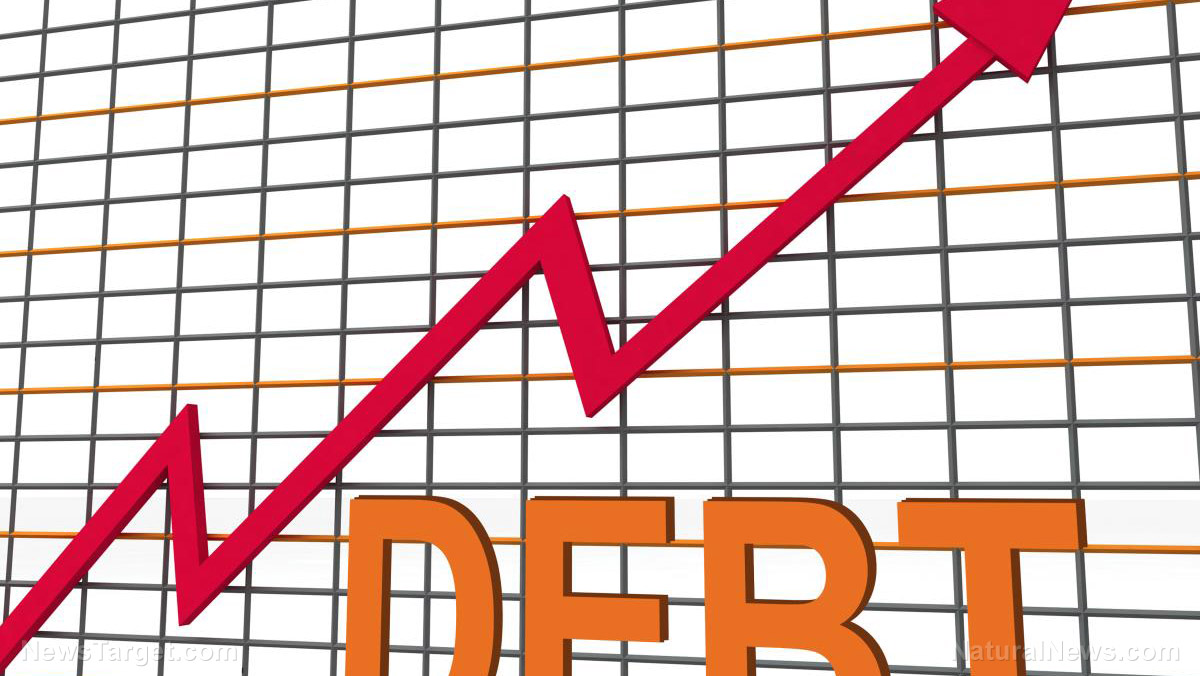JPMorgan strategist warns: Stocks are in “calm before the storm” phase
04/10/2023 / By Belle Carter

Executives at financial giant JPMorgan Chase recently warned of the looming financial crisis as reflected in stocks and the banking crisis.
Marko Kolanovic, a strategist for the company, said the U.S. economy’s slowing growth could send stock back to their 2022 lows. He added that a risk-on mood fueling 2023 equities is likely to falter courtesy of bank turbulence, an oil shock and slowing economic growth.
“We expect a reversal in risk sentiment and the market retesting last year’s low over the coming months,” Kolanovic indicated in a note to clients. He also stated that the Federal Reserve indicated no intention to slash interest rates in spite of risk assets exhibiting an unprecedented rally. European stocks had been trading near all-time highs, and U.S. stocks had been recovering their recent losses.
Kolanovic expressed belief that inflows into stocks over the past few months were largely driven by systematic investors, a short squeeze and a decline in the Chicago Board Options Exchange’s Volatility Index. According to Bloomberg, Kolanovic described the present market backdrop as “the calm before the storm” – suggesting investors believe the banking crisis is contained in the near term.
Stocks have remained resilient this year, despite rising interest rates that have dented corporate profits, slowed growth and triggered a series of bank collapses in the U.S. and overseas. The benchmark S&P 500 rose seven percent in the first quarter of 2023 after dropping nearly 20 percent in 2022. Meanwhile, gains across technology stocks have pushed the Nasdaq 100 up 20 percent since the start of the year and into a bull market, as per Bloomberg.
JPMorgan CEO: Banking collapse has increased risk of US recession
In a separate instance, JPMorgan CEO Jamie Dimon said the banking crisis has increased the risk of the country falling into a recession. He made this remark during an interview with CNN anchor Poppy Harlow in Atlanta, adding that the U.S is now closer to an economic recession due to the collapse of California-based Silicon Valley Bank and New York-based Signature Bank. (Related: JPMorgan CEO Jamie Dimon: Economic hurricane is coming.)
“We are seeing people reduce lending a little bit, cut back a little bit and pull back a little bit. While the banking chaos won’t necessarily force a recession, it is recessionary,” he said.
Dimon also warned both regional banks and American consumers to “be prepared for higher [interest] rates for longer,” adding that there’s a “good change” they will remain so for a longer period. He told Harlow: “I don’t know if it’s going to happen, but be prepared for that tide.”
The JPMorgan CEO continued to warn of storm clouds ahead for the economy. He cited higher inflation, the ongoing Russia-Ukraine war and the Fed’s current tightening regimen as the largest risks he sees for the economy.
Ultimately, Dimon said he feels hopeful about the strength of human capital in the United States.
“I’m a red-blooded, full-throated, free-market, free-enterprise capitalist,” he said for supporting local entrepreneurship. “I think we should applaud free enterprise and we should sing from the hills the benefits while we fix the negatives, as opposed to denigrating the whole thing.”
Visit EconomicRiot.com for more news related to the looming financial storm.
Watch Josh Sigurdson of World Alternative Media and economist Kirk Elliot talk about the banking crisis paving the way for a cashless society.
This video is from the World Alternative Media channel on Brighteon.com.
More related stories:
Top 25 US banks lose $89.7B after withdrawals surge following collapse of SVB and Signature Bank.
Dr. Doom warns: Perfect storm of recession, debt crisis and inflation to hit markets.
Engineered financial coup designed to trigger currency crash and usher in CBDC.
Sources include:
Submit a correction >>
Tagged Under:
Banking Collapse, banking crisis, Bubble, Collapse, debt bomb, debt collapse, economic collapse, economic riot, Federal Reserve, finance riot, interest rates, Jamie Dimon, JPMorgan Chase, market crash, Marko Kolanovic, rate hikes, recession, risk, Signature Bank, Silicon Valley Bank, stocks
This article may contain statements that reflect the opinion of the author
RECENT NEWS & ARTICLES
COPYRIGHT © 2017 NATIONAL DEBT NEWS



















